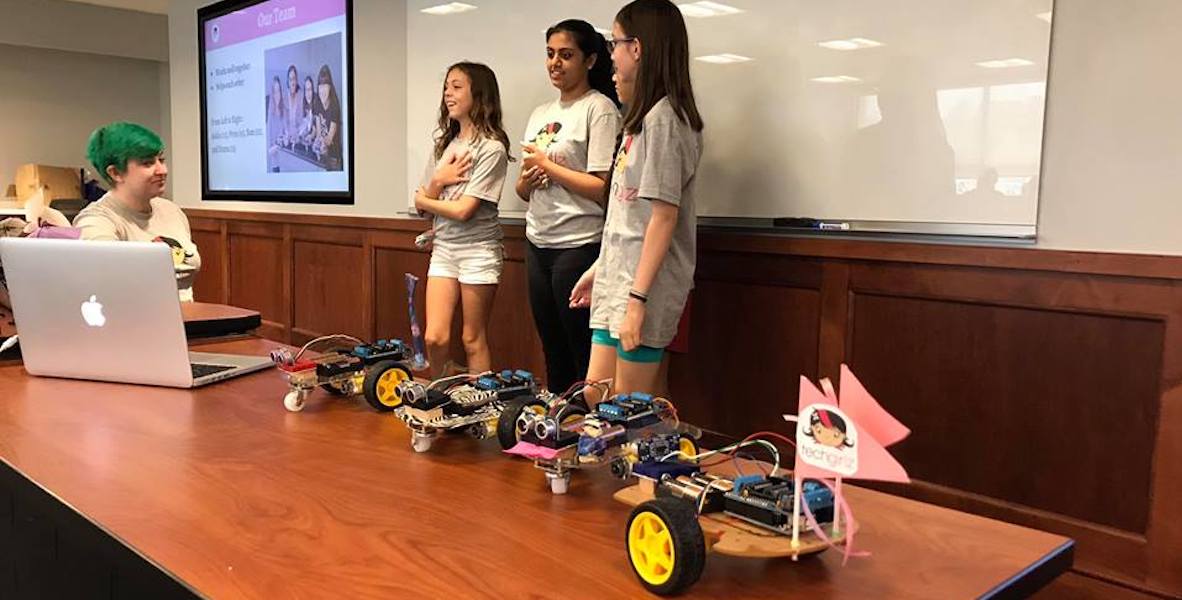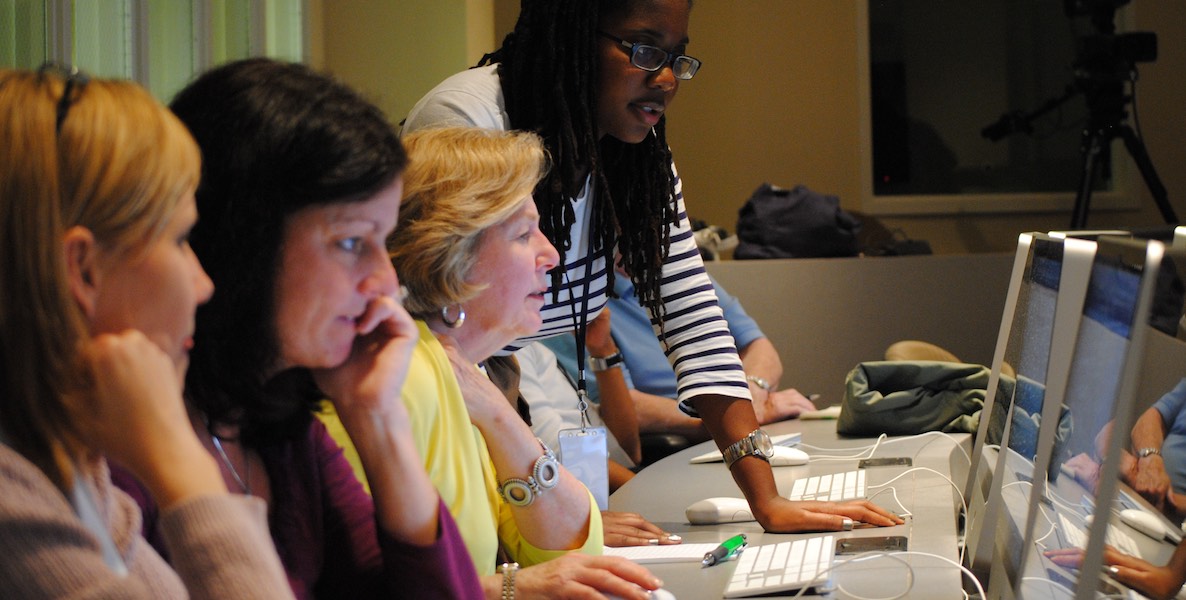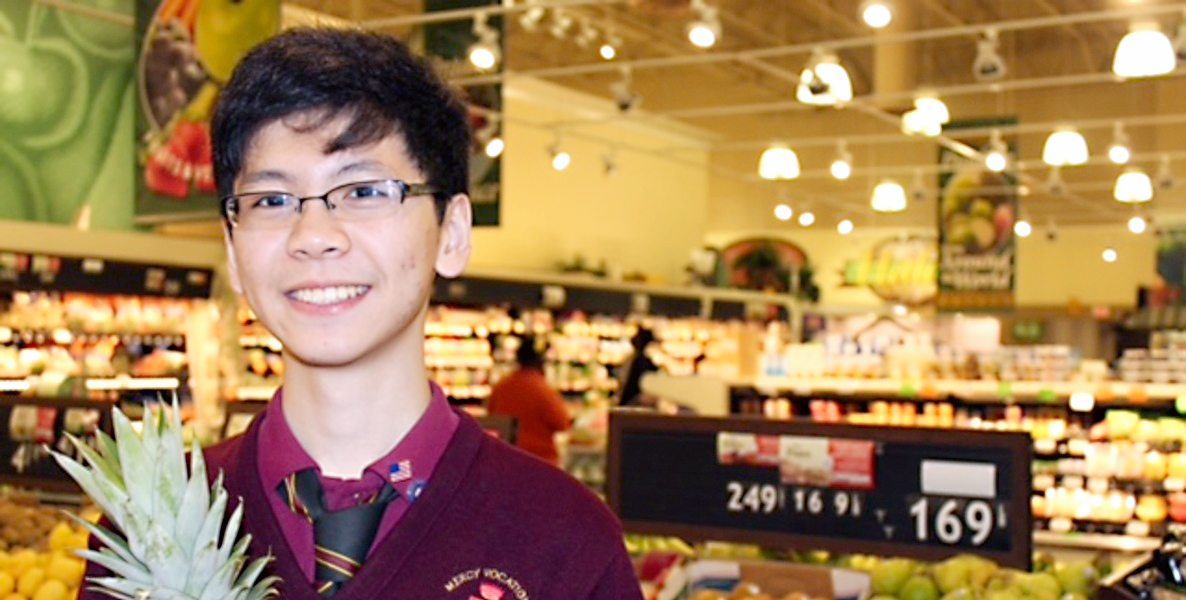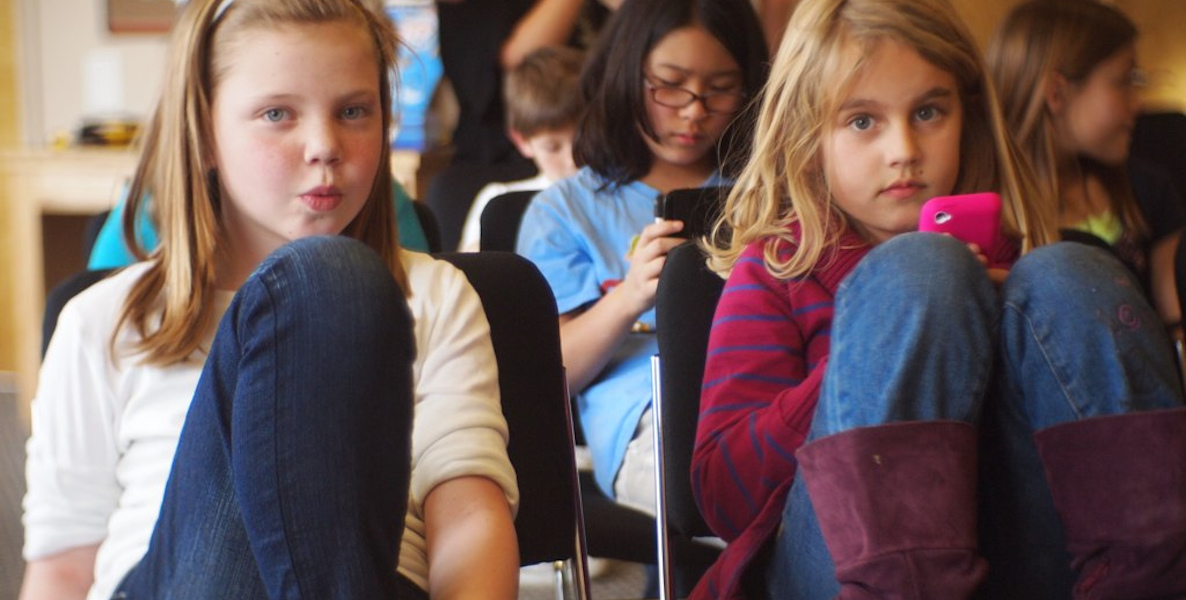In 1999, Katrina Stevens, now an innovator and expert in education technology, was the last of her friends to get a cell phone. Her fear of losing sincere, personal interactions and real-time conversations deterred her from picking up a sleek new device at the local Verizon.
Be Part of the Solution
Become a Citizen member.
She finally caved when she began working at a rural school where she traveled with students in a vehicle. “I figured I would use it for emergencies and work only,” she says. “Now, it’s basically tethered to me, can’t live without it.”
From that late 90s flip phone to today, Stevens has spent two decades working in the education tech world, dedicating her career to figuring out how our education system can benefit from the rapid pace of technological change. She will talk about her work as part of the ExCITe Center’s Learning Innovation Conversations when it returns Tuesday, September 19.
Attend ExCITe Center’s Learning Innovation Conversation with Katrina StevensDo Something
Stevens is an entrepreneur, journalist, teacher and consultant, who created Ed Tech Rapid Cycle Evaluation or RCE, which allows educators to evaluate the technology in their school or district, to better understand the digital resources they currently use and how they can optimize them. “For me, the question always comes back to one thing,” she says. “How does this help support an educator make a better decision?”
As the former Senior Advisor and Deputy Director of the Office of Educational Technology for the Obama administration, Stevens researches what kind of technology works for which people and in what context. “A lot of what I’ve been doing is about getting stakeholders who play some part in education or technology and figuring out ways for them to work together effectively,” she says.
In her current role at EdTech Maryland she’s bringing together stakeholders ranging from policy makers, developers, and educators, and helping them connect on issues so everyone can get closer to the goals they’re looking to achieve.
Stories merging the tech world and educationRead More
But it all comes down to one thing when talking about the accessibility of technology in the classroom. “The part that is really important for me is it only works if it really does create more opportunities for all students,” she says. One concern for Stevens is that although she’s striving for open environments in which kids from anywhere can access technology, it can just as easily create a divide. “The question comes into play, who can afford this technology?” She says. “It’s important to keep an eye on that.”
On Tuesday, Stevens will talk about the best uses of technology in the classroom, how educators need to be at the table during these discussions, and the ways we use tech today. “Tech is a tool. It’s a learning tool,” she says. “It’s not the tech in and of itself that is innately good or bad, it’s how we use it.”
Header Photo: Brad Flickinger for Flickr





